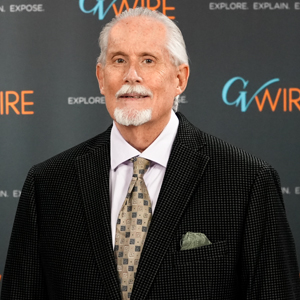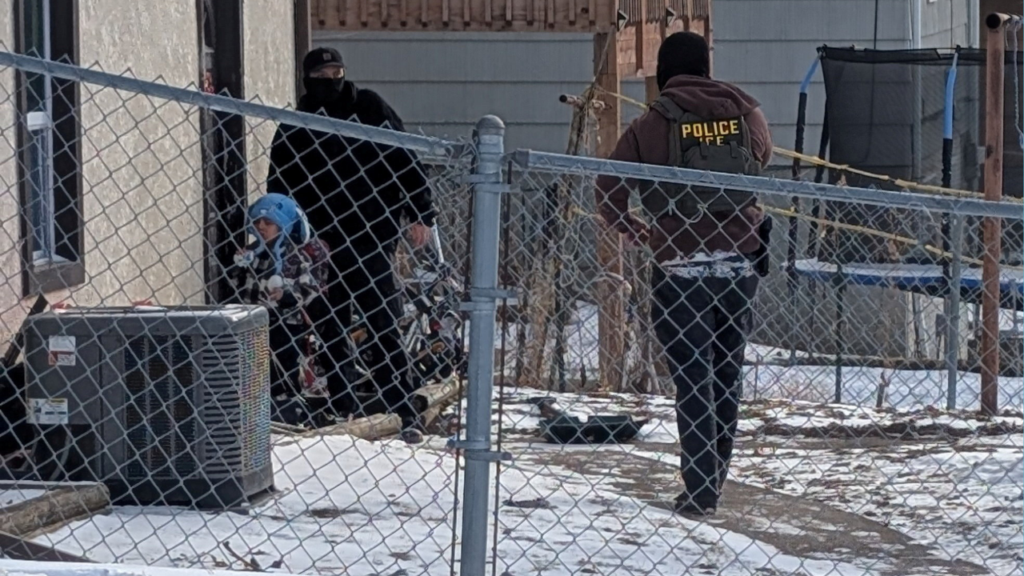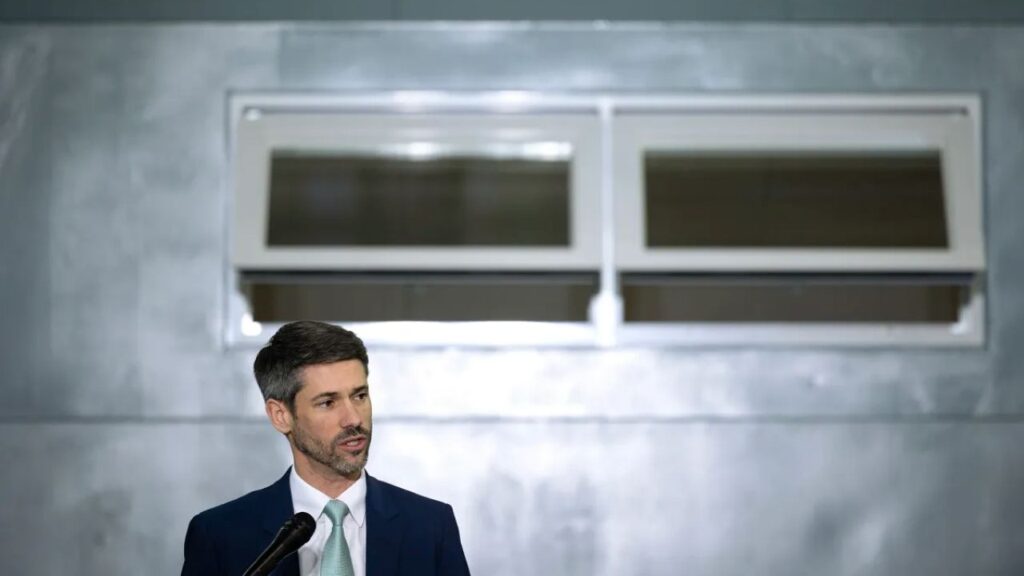Share
Educators throughout the state applauded when Gov. Gavin Newsom appointed former Sanger Unified School superintendent Matt Navo to the California Board of Education in April.
Besides being a pioneer in collaborative learning, he’s a nationally recognized expert in special education. And he’s had a taste of just about every assignment in K-12 education.

Bill McEwen
Now he’s with San Francisco-based education nonprofit WestEd, where his charge is to help school districts close the achievement gap, especially among students with disabilities.
I sat down with Navo to discuss his career and education in California.
McEwen: Why did you go into education?
It’s funny. All my family was law enforcement or military, but my stepfather met my mother when I was 5 years old in 1975. He was Dr. Cecilio Orozco, a professor at Fresno State for bilingual education. He introduced me to the education side in terms of how you can use it to change lives.
He told a story that resonated with me about working in a Navajo Indian reservation. There was a piece of tape down the center of a hallway. And on one side of the tape, the Navajo Indians walked and on the other side of the tape, everybody else walked. And he could not get anybody to think about the change that needed to be made until one of his mentors said that if you want people to listen to you, if you want people in power to hear you, you need to get an education. You need to do more than just what you’re doing. You need to elevate yourself so you can make change for those kids. That’s what really prompted him to get his doctorate and, as a result of his doctorate, people started listening to him.
But the message wasn’t that the doctorate was important, the message was that education needs people who are passionate. And what he taught me was, there’s opportunity for people like me to make a difference for others. And so because of him and the doors that he opened, that really is what ended up happening. People knew him and because they knew him they knew what he did. And he was a role model for me as a stepfather. And I appreciated the way he approached the desire to change things without being incredibly radical about it, but being thoughtful about it. It was intriguing to me. And so I ended up going into it and fell in love with educating students with disabilities.

Sanger Unified has received national acclaim for its success in educating impoverished and immigrant students. Other than hard work, is there a secret sauce to Sanger’s efforts?
Sanger is an interesting story and an amazing story. One of the things that has always jumped out to me about that is the journey they took. When I went there in 2000, I was intrigued by (the “Welcome to the Home of 400 Unhappy Teachers” billboard). I learned very quickly that Sanger is a very hardworking community and very much wants the best thing for their kids.
I wouldn’t say there’s a secret sauce, but they learned how not to be paralyzed by all the people telling you how to do X, Y and Z. People like Mark Johnson and Rich Smith took the complex and made it simple and focused on those simple things over and over again. This is different than the experience of many educators who experience a shiny new object every year and feel like the focus is constantly shifting. Sanger has done a nice job of focusing on professional learning communities, multi-tier system supports, and collaboration. They focus on doing these three things extremely well. And so I think where districts can learn from their work is staying anchored to something. Give the system time, learn, and improve what you’re trying to do.

Charter schools are under the microscope. How do you see their role in California public education?
I think the governor with his charter task force is going to get to greater clarity about what their purpose is and what roles they can serve. Personally speaking, my son attends a charter. I’ve always believed that the California school system is built on options and opportunities for kids. Charters give those options and opportunities for kids and their families.
So the goal is to preserve opportunities and continue to innovate but curb the charter school abuses that sometimes take place?
Sure, but I think you have abuses everywhere. It’s not just isolated to charters. In a system this large, if you search long enough and hard enough you’re going to find things that are not being done well. But what I like about charters uniquely is they force the public school system to think differently about how it provides a service to what is, ultimately, a client — the student — and the family.
Why are you so passionate about special education?
Learning was a struggle for me. My mom did the best that she could with the gifts that she was given. My teachers worked incredibly hard. They helped me to learn to read, but I learned to read very late. And I felt like I was challenged by that. And I knew what it felt like to struggle to learn at the same pace as everybody else. And so when I met my first class (as a teacher), it reminded me of me in a lot of ways. They had unique strengths and were struggling to learn in some ways. And my heart just went out to them.
You mentioned “multi-tier support” when talking about Sanger Unified’s formula for success. What exactly is that?
So the simplest example I can give you is as that framework would translate down into a classroom level. It would be bringing the practitioners that help provide education to that student into a conversation where they’re addressing the academic needs in alignment with the behavioral and social-emotional needs.
So right now what happens in a more traditional model would be maybe we’re addressing the needs associated with academic literacy. But we’re not also talking about the issues related that may be preventing them from learning because they are dealing with trauma at home or they’re coming from a past experience that is very traumatic. And so a multi-tiered system would say, OK, we’re going to talk about both of those at the same time. They’re not going to be exclusive of one another. And we’re going to design a system that not only supports the teacher’s ability to provide the service but we’re going to support the student in a way that gives them the most opportunities to be successful.
On paper, it sounds great. But getting the boots on the ground is very difficult because of the time and because students have varied needs. So in order to do that, for a classroom that has 30 kids, it’s helping districts think about how they get the most bang for the buck.
From where you sit, does it appear society has gotten to where it expects the schools to fix all of society’s problems?
The way I see it, people in our society or kids in our society are dealing with a lot. They face a lot more complicated issues than I dealt with as a student. There are things that my mother let me do when I was young in the 1970s that I would not let my sons do now. It’s the fact that things have changed for our young people in such a way that it’s taking a teacher a little bit more time understanding (their needs). I think we’re at a place where we’re really struggling with how best to meet all students needs and how best to approach them. You hear it when it comes to discipline. You know districts are struggling with how best to address the disciplinary issues and at the same time honor the fact that students are coming to them with things that they never would have come to school with (in previous generations). So I think that is a unique challenge right now.
What are you bringing to the state Board of Education and what do you hope to accomplish?
I can bring my experience to the conversation. In most cases, the education initiatives are being created by a legislative body or someone in legislation who has no experience in education. The intentionality is good. But the intention of what they’re trying to do is based on what people in their field are saying the system needs. Advocates or educators or whatever.

When the board is discussing certain things, my hope is that there’s an opportunity for me to say, OK, what does that look like in practice? Working with (the California Department of Education) to help translate that into meaningful work for people in the field is key. So if I can bring a lens and I can bring the right questions, then I can bring a sense of understanding and seek to learn about what that system is trying to do.
I think that the state board is on the right track. I really like the board members that are there right now. I think they’re all incredibly intelligent and they all have what’s best for kids in mind. Sometimes, we look at other states and we say, wow, Massachusetts can do it. Then everyone says, well, California’s down in comparison. My argument has always been: That may be true, but L.A. Unified has more students than most of those states. So it’s harder for the message to penetrate a system like California. For the work to penetrate deeply and get rooted takes time.
You talked about how your stepfather inspired you to go into education. Do you have another education hero?
(Former Sanger Unified deputy superintendent) Rich Smith is another one I learned a lot from. What Rich brought to the table was an undeniable, relentless commitment that you’re going to work hard for everything you get. And if you work hard in school, you’ll achieve things. Success doesn’t come easy. He instilled that in me. Because in retrospect, when I think of what God has done in my life and the people he’s brought into my life, to create an opportunity for me to get educated by certain people, it’s an absolute blessing.

Rich Smith taught Matt Navo in elementary school and hired him for his first teaching job.
Do you see yourself being a superintendent again?
Right now, no. I’m right where I need to be. I never say never because I’ve learned that things change. But right now I’m where I need to be. I feel like I’m making the greatest difference here.
A superintendent job is probably one of the most incredible, most difficult positions to do, alongside that of a director of special ed. I’ve experienced both. And, with a superintendent job, I found that I had to really go out and work to find where the ripples were — the positive ripples of the decisions we were making as a team. That’s because most of the time the things staring you and glaring you in the face as a superintendent are the things that are not working. You’ve got to work hard to find the benefits of what you’re doing.
For me, in this role (with WestEd), I’m more clearly able to see the positive influence that I’m able to provide. So if I can go in with a superintendent, some of my work is coaching, and I can give them an hour of time to reflect on the difficulty, at least they’re reflecting with somebody that knows the journey. And I can offer them words of wisdom, advice and support to get through what is always a very difficult job. If I ever have an opportunity go back, I go back in with eyes wide open, knowing what I will physically and emotionally experience.


















